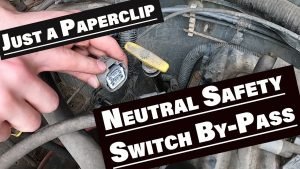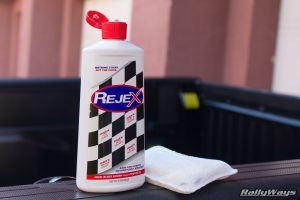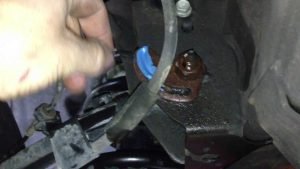Contents
How Much Does it Cost to Fix a Fuel Pump? A Comprehensive Guide
A malfunctioning fuel pump can leave you stranded, so understanding the costs associated with repair or replacement is crucial. This guide breaks down the expenses involved, offering a clear picture of what you might expect to pay to get your vehicle back on the road.
Understanding the Variables: The cost of fixing a fuel pump is highly variable and depends on several factors:
- Vehicle Make and Model: Luxury cars and trucks often require more expensive parts and labor than economy vehicles. The complexity of accessing the fuel pump also varies greatly depending on your vehicle’s design.
- Labor Costs: Labor rates differ significantly by geographic location and the specific mechanic or repair shop. Independent garages typically charge less than dealerships.
- Part Cost: The price of a new fuel pump varies based on the brand, quality (OEM vs. aftermarket), and your vehicle’s specific requirements. Genuine OEM parts are usually more expensive but often come with a longer warranty.
- Additional Repairs: Sometimes, a fuel pump issue is related to other problems, such as a faulty fuel filter or a damaged fuel line. These additional repairs will add to the total cost.
- DIY vs. Professional Repair: Attempting a DIY repair can save on labor costs, but it requires mechanical skills and the right tools. A mistake could lead to further damage and increased expenses.
Estimating the Cost:
While providing an exact figure is impossible without knowing your specific vehicle and situation, here’s a general cost breakdown:
- Labor: Expect to pay anywhere from $100 to $500 or more for labor, depending on the complexity of the job and your location.
- Parts: A new fuel pump can cost anywhere from $100 to $500, again depending on the vehicle and part quality.
- Total Cost: Therefore, you could anticipate a total cost ranging from $200 to $1000 or more for a fuel pump replacement. This is a broad estimate; always get a quote from your chosen mechanic.
Step-by-Step Guide (For Professional Mechanics): This is not intended for DIY attempts. Attempting this yourself is risky and can cause severe injury or further damage.
While we won’t detail the steps for DIY repair, it’s important to understand that professional repair generally involves:
- Diagnosis: The mechanic will diagnose the problem to confirm it’s the fuel pump.
- Part Procurement: The necessary fuel pump and potentially other related parts are obtained.
- Vehicle Preparation: The vehicle is properly prepared for the repair, often involving disconnecting the battery.
- Fuel Pump Access: Accessing the fuel pump requires careful removal of other components, varying significantly by vehicle.
- Fuel Pump Replacement: The old fuel pump is carefully removed and replaced with the new one.
- System Testing: The system is thoroughly tested to ensure proper function and leak prevention.
- Reassembly: All removed components are carefully reinstalled.
Tips for Saving Money:
- Shop Around: Get multiple quotes from different mechanics and repair shops to compare prices.
- Consider Aftermarket Parts: Aftermarket fuel pumps are generally cheaper than OEM parts, but check reviews and warranties carefully. Always prioritize quality over price, especially for safety-critical components.
- Negotiate: Don’t hesitate to negotiate the price with the mechanic, especially if you have multiple quotes.
- Regular Maintenance: Preventative maintenance, including regular fuel filter replacements, can extend the lifespan of your fuel pump and potentially prevent costly repairs.
Common Mistakes to Avoid:
- Attempting DIY repair without experience: This is extremely dangerous and can lead to significant damage.
- Ignoring warning signs: Address fuel pump issues promptly to avoid further damage and prevent being stranded.
- Using incompatible parts: Ensure the replacement fuel pump is compatible with your vehicle’s make and model.
- Not properly bleeding the fuel lines: Failing to properly bleed the lines can lead to air in the fuel system, hindering performance.
Conclusion:
The cost of fixing a fuel pump is a significant variable, but by understanding the factors involved and following the tips above, you can make informed decisions and minimize expenses. Remember, safety and proper repair should always be prioritized, and seeking professional help is often the safest and most cost-effective approach in the long run. Always get a detailed quote before proceeding with any repairs.
FAQ
Q. How much does it typically cost to replace a fuel pump?
A. The cost to replace a fuel pump varies significantly depending on several factors, including the make and model of your vehicle, the location of the fuel pump (in the tank or externally), labor costs in your area, and the price of the replacement part. You could be looking at anywhere from a few hundred dollars to over a thousand dollars. Getting multiple quotes from different mechanics is always recommended.
Q. Is it more expensive to replace a fuel pump in a car or a truck?
A. Generally, it can be more expensive to replace a fuel pump in a truck, simply because trucks often have larger fuel tanks and therefore more involved labor to access and replace the pump. However, the specific make and model of the vehicle play a larger role than whether it’s a car or truck.
Q. What factors influence the overall cost of fuel pump repair?
A. Beyond the price of the part itself, several factors inflate the total cost. These include the mechanic’s labor rate (hourly or flat fee), the difficulty of accessing the fuel pump (requiring tank removal often adds significantly to the labor), and any additional parts that may need to be replaced during the repair process, such as fuel lines or fuel filters. Diagnostic fees are another potential addition to the total cost.
Q. Can I save money by buying a fuel pump myself and having a mechanic install it?
A. Yes, you might save some money by purchasing the fuel pump from an auto parts store or online retailer. However, be absolutely sure to obtain the correct part for your specific vehicle; an incorrect pump can lead to further damage. Even with your own part, remember that labor costs will still constitute a substantial portion of the final bill.
Q. Are there any signs that my fuel pump might be failing?
A. Several symptoms suggest a failing fuel pump. These include difficulty starting the engine, sputtering or hesitation while driving, a noticeable decrease in fuel efficiency, a whining noise from the fuel tank, and the engine suddenly cutting out, especially when driving uphill or accelerating. If you notice any of these issues, have your vehicle inspected by a qualified mechanic as soon as possible.
Q. How long does a fuel pump replacement typically take?
A. The time required to replace a fuel pump varies greatly depending on the vehicle’s design and the mechanic’s experience. A simple replacement might take a few hours, while more complex jobs, particularly those requiring tank removal, could take a full day or more. Always inquire about the estimated repair time when obtaining quotes.
Related Articles
How Much Is Fuel Pump Replacement
How Much Is Fuel Pump Replacement? A Comprehensive Guide Replacing a fuel pump is a significant car repair, and understanding the cost beforehand can …
How Much to Replace Fuel Pump
How Much Does It Cost to Replace a Fuel Pump? A Comprehensive Guide A failing fuel pump can leave you stranded, so understanding the cost of replaceme…
How Much Does a Fuel Pump Cost
How Much Does a Fuel Pump Cost? A Comprehensive Guide Replacing a fuel pump is a significant car repair, and understanding the cost is crucial for bud…
Affiliate Disclosure: As an Amazon Associate, I earn from qualifying purchases made through links on this site.





